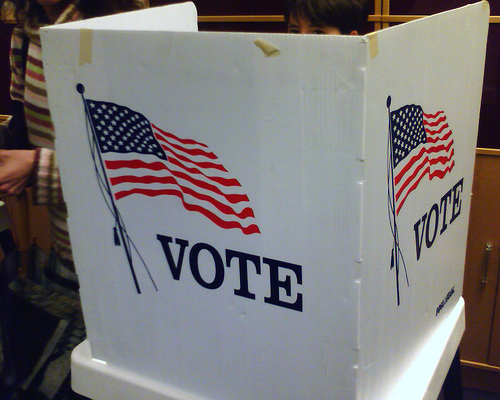SAINT LOUIS, Mo. — As candidates gear up for primary challenges across the state, those running in special elections will be subject to an unusual ballot process. If you’re seeking office in Missouri House districts 67, 86, 120 or 151, you’re going to see your name on the ballot twice on August 5.
There are four vacancies in the Missouri House. One seat was vacated when Jason Smith won his congressional seat, another when Dennis Fowler was appointed to the state parole board, another when Steve Webb resigned after fraud charges were filed against him, and one as a result of the sudden death of Rep. Rory Ellinger of University City.
In each instance, the seat was vacated before the elected lawmaker completed his term. This means that first there must be an election to allow someone to finish out the 2012-2014 term. For a Republican Party currently 1 vote short of a veto proof majority in the House, the special elections mean shoring up party numbers ahead of the veto session in September. Should the districts remain under incumbent party control, Democrats and Republicans will pick up two seats apiece, giving Republicans all the members they need to override a veto.
Voters in each of the four districts will elect someone to go to Jefferson City for veto session to cast votes. They will also be asked to select a candidate for the general election for the seat in November, meaning most of the people running in each district will see their names on the ballot twice. In some districts, the outcome seems all but set.
In Webb’s former district, former one-term House member Sylvester Taylor had more than $4,000 in April, compared to his nearest opponents $290. In Congressman Jason Smith’s former seat, Shawn Sisco has raised well over $13,000, more than ten times his nearest contender, at least one of which appears to have no campaign committee at all.
In Fowler’s former district, Tila Hubrecht, a nurse and former local teacher has a commanding fundraising lead. In Ellinger’s district, the race seems to lack any real fire. Only one candidate for that seat has fundraising information available online, and at least two appear to have no campaign committee whatsoever.
Typically, the candidate who is chosen to represent the district for veto session will be the same candidate chosen to run in the general election for the next term, but the matter is far from a lock.
In each district, it would be surprising for the controlling party to lose the seat. Ellinger’s district is located in the heart of University City and only Democrats have filed for the seat. Webb’s former district has 4 Democratic candidates running for the fairly safe seat against a single Republican. In both District 120 and 151, Republicans are largely expected to hold the seats, thanks in no small part to their obvious fundraising advantages in each race.
Collin Reischman was the Managing Editor for The Missouri Times, and a graduate of Webster University with a Bachelor of Arts in Journalism.







